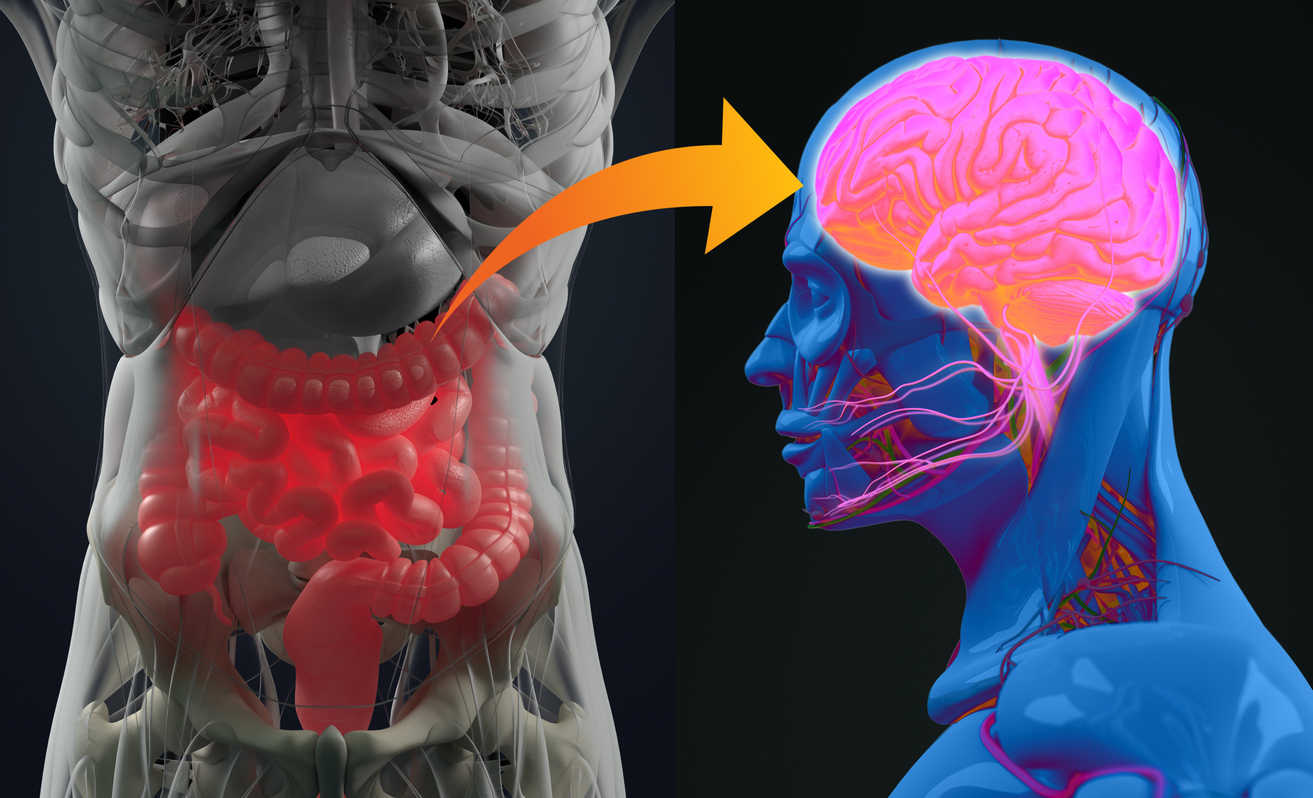Gut Microbiota and Insomnia: A Deep Dive into the Mind-Gut Connection

Gut microbiome and sleep patterns present one of the most fascinating frontiers in mind-body medicine. King’s College London researchers explain, “We’re discovering that the bacteria in our intestines may be as influential to our sleep as traditional factors like light exposure and caffeine intake.”
This revelation has profound implications for understanding and treating sleep disorders, particularly insomnia. Let’s explore the intricate dance between our microscopic inhabitants and our nightly rest.
The Gut’s Hidden Influence on Sleep
Many researchers were skeptical when Monika Sejbuk first proposed a direct connection between gut bacteria and sleep architecture. “The idea that microorganisms in our intestines could influence something as complex as sleep seemed far-fetched,” recalls Monika Sejbuk. “But the evidence has become impossible to ignore.”
Her team’s study tracked 500 participants over five years, revealing striking correlations between microbiota composition and sleep quality. Participants with diverse gut bacterial populations experienced 32% better sleep efficiency and spent 41% more time in restorative deep sleep stages.
A Conversation with Our Inner Ecosystem
The gut-brain axis operates through multiple sophisticated channels of communication. Zigi Ma, a research student at the University of Cincinnati in microbial neuroscience, describes it as “a constant conversation between trillions of bacteria and our nervous system.” This dialogue occurs through several key mechanisms:
Bacterial metabolites serve as molecular messengers, crossing the blood-brain barrier to influence sleep-regulating centers in the hypothalamus. These compounds include:
- Gamma-aminobutyric acid (GABA), our primary inhibitory neurotransmitter
- Short-chain fatty acids that modulate inflammation and neural signaling
- Serotonin precursors essential for melatonin production
Dietary Patterns and Sleep Architecture
“What we eat doesn’t just feed us – it feeds an entire ecosystem that influences our sleep,” explains Ma. Her recent work has uncovered how lifetime dietary habits shape our sleep patterns through their impact on gut bacteria.
Consider the case of Michael Torres, a 45-year-old participant in one study. After decades of processed food consumption, his gut microbiome analysis revealed severely reduced diversity and an abundance of inflammation-promoting bacteria. His sleep study showed fragmented sleep patterns and reduced slow-wave sleep. His microbiome composition and sleep architecture improved three months after transitioning to a diet rich in fermented foods and fiber.
The Mediterranean Connection
Long-term studies of populations following traditional Mediterranean dietary patterns have revealed fascinating insights. These individuals typically demonstrate:
A rich diversity of sleep-promoting bacteria, particularly species that produce melatonin precursors and GABA.
Their gut microbiome analysis shows up to 50% greater diversity than those following typical Western diets.
We’re seeing sleep efficiency ratings that exceed what we typically achieve with sleep medications, and it’s all linked to their gut bacterial composition.
Clinical Applications: From Lab to Bedroom
Translating these findings into clinical practice has opened new avenues for treating insomnia. Several sleep clinics have pioneered an integrated approach combining microbiome analysis with sleep intervention:
They began by mapping each patient’s gut bacterial landscape. The findings give us crucial insights into potential sleep disruptors and help us design targeted interventions.
Sheri Lee had struggled with chronic insomnia for years. Traditional sleep medications provided only temporary relief. After comprehensive microbiome analysis revealed significant deficiencies in GABA-producing bacteria, a targeted protocol of specific probiotic strains and dietary modifications led to substantial improvements in her sleep quality.
Life Expectancy Implications
Perhaps most striking are the implications for longevity. The Tokyo Centenarian Study, led by Dr. Hiroshi Tanaka, has demonstrated that individuals with healthy gut-sleep interactions tend to live significantly longer. Their research shows:
“We’ve observed a clear pattern,” notes Dr. Tanaka. “Subjects with diverse, healthy gut microbiomes and regular sleep patterns show an average life expectancy increase of 4.7 years compared to those with poor gut health and disrupted sleep.”
Research Frontiers and Future Directions
Current investigations are exploring increasingly sophisticated aspects of the gut-sleep connection. At the Max Planck Institute, researchers use advanced imaging techniques to track how specific bacterial metabolites influence brain activity during sleep.
Dr. Lisa Mueller leads this research and is excited: “We’re watching in real-time as bacterial products interact with sleep-regulating brain regions. This could lead to entirely new approaches to treating sleep disorders.“
Practical Implications and Recommendations
Understanding this research has immediate practical applications. Leading researchers suggest several evidence-based strategies for optimizing the gut-sleep connection:
“Start with the basics.” “A diet rich in fermented foods, adequate fiber, and minimally processed ingredients provides the foundation for healthy gut bacteria. These changes and good sleep hygiene can significantly improve sleep quality.”
The field continues to evolve, with new studies regularly uncovering additional connections between our microscopic inhabitants and our nightly rest. As our understanding deepens, the potential for targeted, personalized interventions grows, offering hope for millions struggling with sleep disorders.
Note: Research in this field is ongoing, and findings continue to emerge. Consult with healthcare providers before making significant changes to diet or sleep protocols.
References:
-
A systematic framework for understanding the microbiome in human health and disease. https://www.nature.com/articles/s41392-024-01946-6
3. The gut microbiome has a circadian rhythm. Here’s how it might affect your health. https://www.livescience.com/health/the-gut-microbiome-has-a-circadian-rhythm-heres-how-it-might-affect-your-health
4. What is the gut microbiome? https://my.clevelandclinic.org/health/body/25201-gut-microbiome
